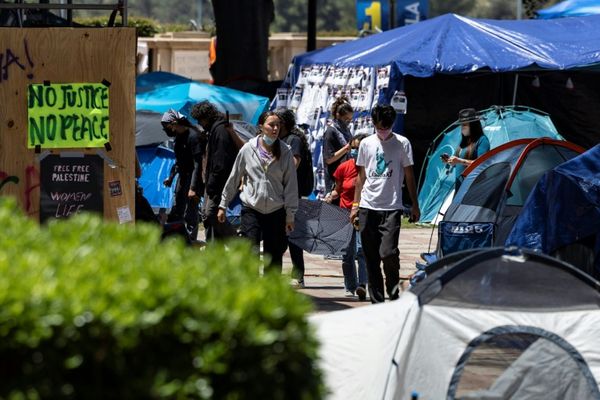
On election night, all eyes will be on one of the most marginal electorates in the country: the seat of Wentworth. Situated in the eastern suburbs of Sydney, this 38 sq km slice of paradise, incorporating iconic Australian beaches and houses the size of office blocks, is truly on a knife-edge.
The incumbent, Liberal Dave Sharma, won by fewer than 2000 votes in 2019 — if just half that number of voters change their mind and vote for independent candidate Allegra Spender, the millions of dollars the Liberals are spending trying to save the seat will go up in smoke.
I haven’t seen a contest this close since I covered the electorate of Bennelong in 2007. That election, then-prime minister John Howard held the seat by 3000 votes — as history records, he lost his seat to ALP candidate Maxine McKew in the “Ruddslide” poll, as Australian voters decided that his government did not deserve a fourth term.
To win Wentworth, the Spender campaign will have to emulate McKew and get rusted-on Liberal voters to change the habit of a lifetime.
Wentworth is only one of two electorates that have never been held by the ALP in NSW (North Sydney is the other). If you look at the census statistics, the residents work disproportionately long hours and earn very high salaries in their jobs in legal and banking services. These voters are not so concerned about petrol prices.
But the key to understanding the seat is in its educational attainments — almost half the residents have a bachelor’s degree or above, twice the national average of 22%. This now correlates closely with concern about the environment. As the cliffs of Vaucluse cascaded with waterfalls in this week’s “once-in-a-century” deluge, the residents of Wentworth have been demanding action on their number-one priority: climate change.
Spender launched her campaign last night in the ballroom at Double Bay’s Intercontinental Hotel. It was packed: about 700 people had RSVP’d to attend, but those numbers would have been cut by the apocalyptic weather — regardless, though, it was a very large turnout.
It was a strategic launch. One previous Spender event I’d attended had been top-heavy with (very impressive) women, but this one was designed to reassure Liberal voters that Spender, while socially progressive, was in fact an economic and fiscal conservative.
The person who introduced the candidate was businessman and filmmaker David Haslingden, who spent the first part of his career in the US working for Rupert Murdoch.
Haslingden told the crowd that he had grown up on a farm outside Cooma, with parents who had always voted for the Liberal Party. Farming families knew how to adapt to change because going into a drought with a weak balance sheet could mean losing everything, he said.
“But if you anticipate and plan well, you can prosper.”
Haslingden, in a suit and tie, went on to echo the sentiments of Tim Reed, the president of the Business Council of Australia, who has called for a 50% emissions reduction by 2030.
Mitigating the effects of climate change brought business opportunities, he said. As the hottest and windiest continent in the world, Australia was well placed to become a “solar and hydrogen superpower”.
One of Spender’s team’s strongest arguments has been pointing out that Sharma, while paying lip service to progressive issues, votes much the same way as Barnaby Joyce.
Haslingden said that Sharma’s policy statements demonstrated a logic that would have confused Catch 22’s Milo Minderbinder.
“He argues that he can’t achieve his goals unless he is in power, but in order to stay in power, he must set aside his goals. That’s not good enough.”
After a video tribute from her father, former Liberal politician John Spender, the candidate herself appeared. The former head girl of Ascham spoke very well, saying that her priorities, if elected, also included establishing a federal ICAC “with teeth”, reform of electoral donation laws, the allocation of government grants on the basis of need (not on marginality of seats), and ensuring the future of public broadcasters.
The Intergovernmental Panel on Climate Change recently said that keeping global warming to 1.5 degrees is likely to be beyond reach, she said.
“This is real and urgent,” Spender said. “The actions we take in the next three years are absolutely critical. Together, we can create a better climate for Wentworth.”
The official part of the night finished up with a video from four young members of the local Montessori School’s environmental group, begging the audience to secure their future by taking action now. Is there anything more poignant than the pleading eyes of eight-year-olds, asking us to ensure a future for them?
I went home, scurrying past the myriad campaign workers thrusting bags, T-shirts and dog bandanas at me. Has there ever been a campaign with so many friendly, well-spoken volunteers? And so much merch? All ethically-made and recyclable, of course.







